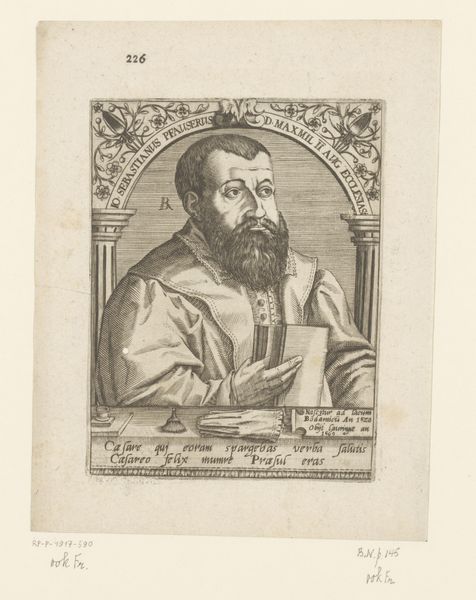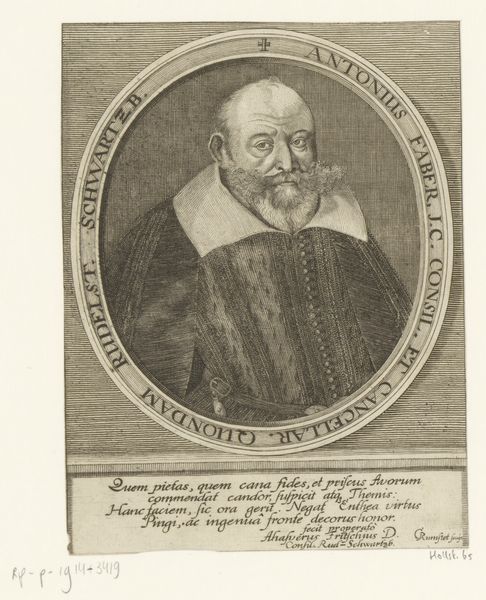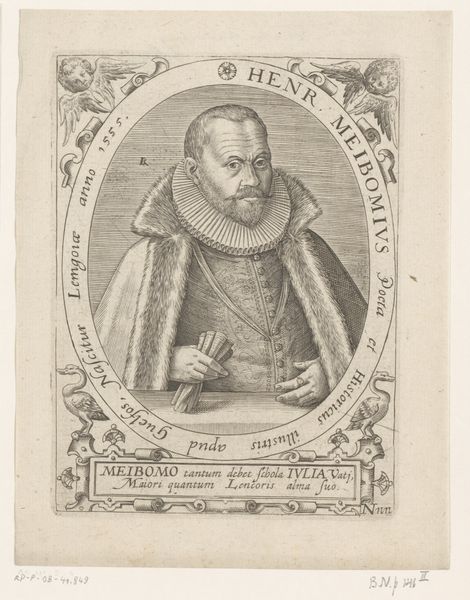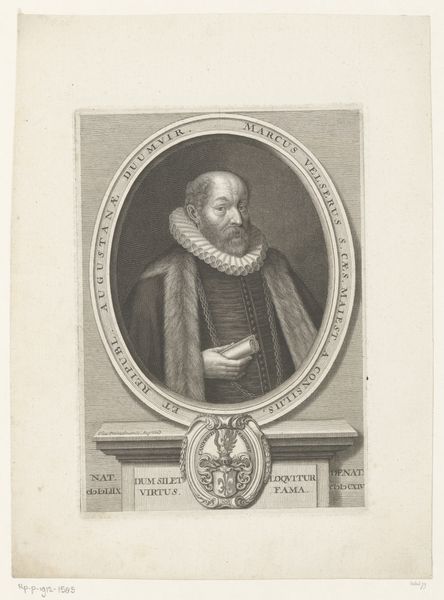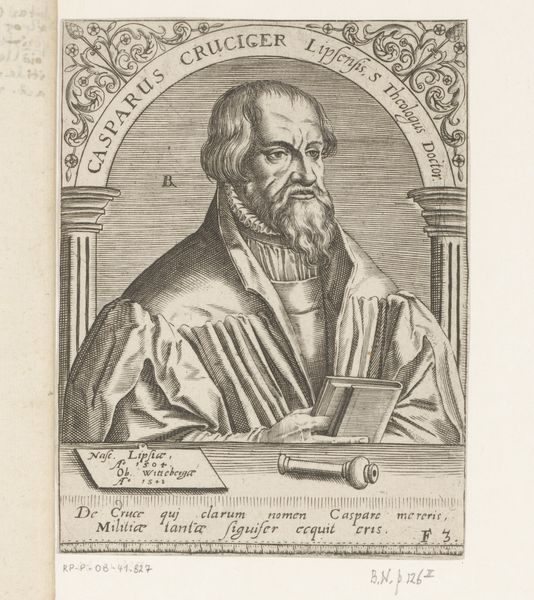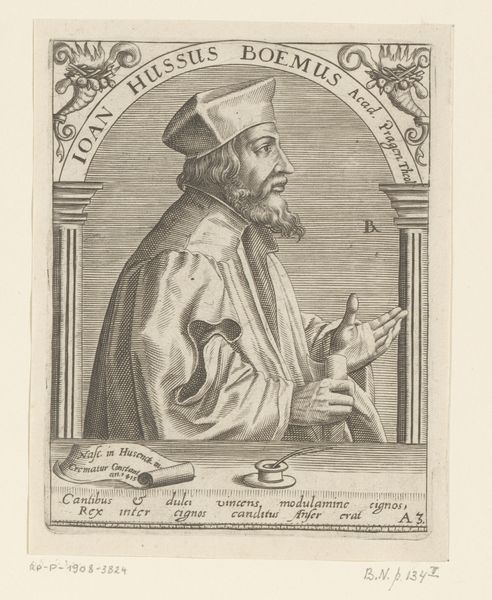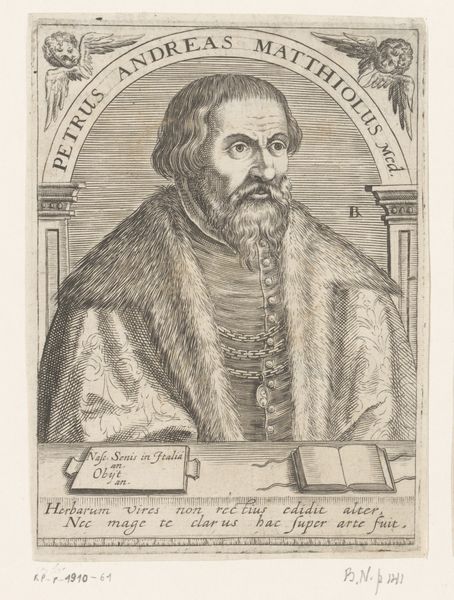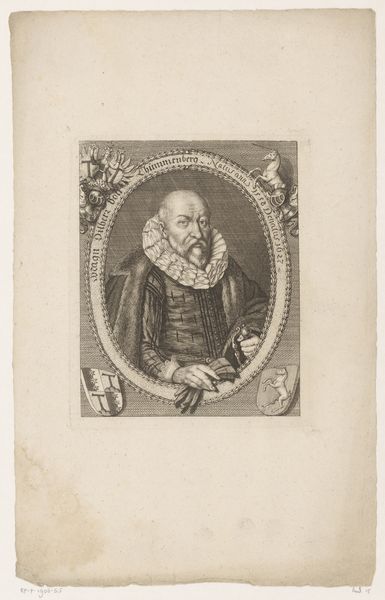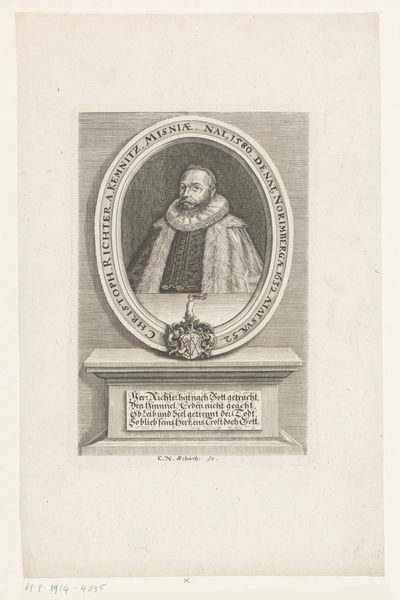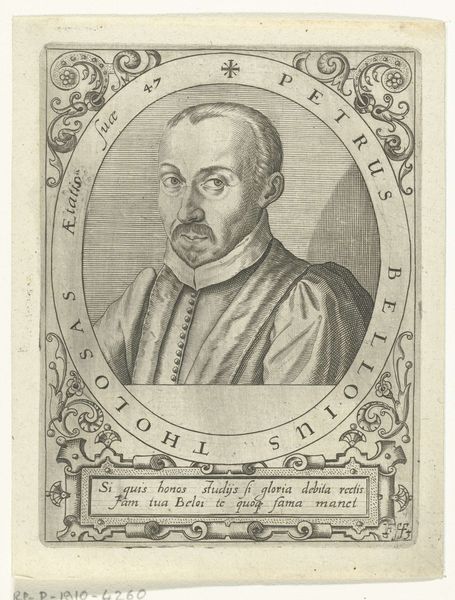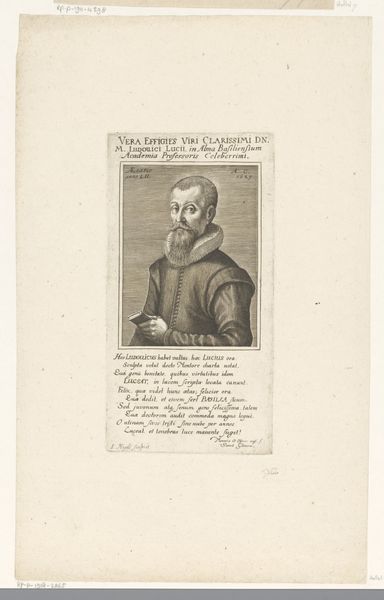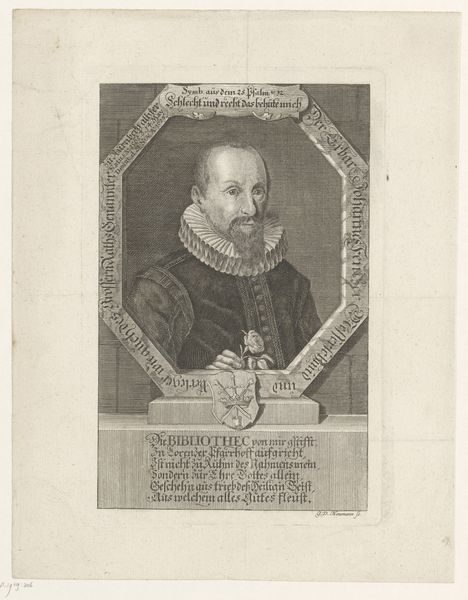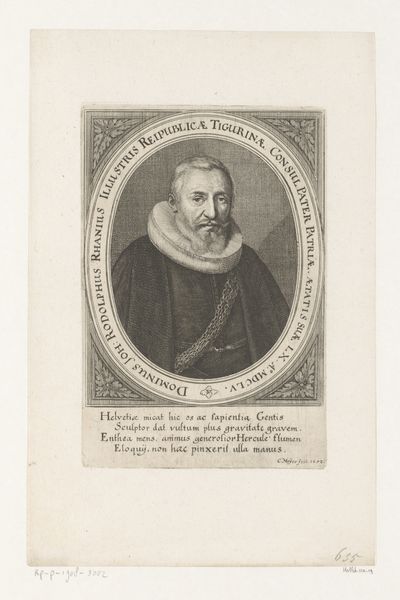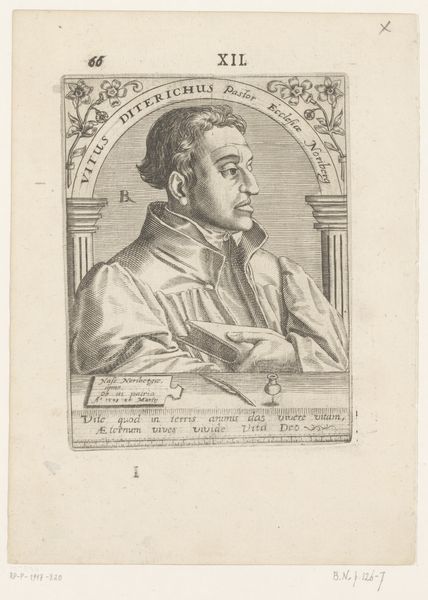
engraving
#
portrait
#
baroque
#
old engraving style
#
geometric
#
19th century
#
history-painting
#
engraving
Dimensions: height 219 mm, width 141 mm
Copyright: Rijks Museum: Open Domain
Editor: Here we have a portrait engraving of Hugo Everhard Cratz, Count of Scharfenstein, dating somewhere between 1644 and 1671. It has such an austere, powerful feel to it. How do you interpret this work? Curator: It's interesting how portraiture, especially during the Baroque period, functioned as a tool for constructing and reinforcing social hierarchies. Notice the intricate details in his attire, suggesting wealth and status. Who was this man in relation to the social and political climate of his time? Editor: I see he's identified as "Joannes Crato a Craftheim archicas". That sounds pretty important, given the classical framework with the pillars and text. Curator: Precisely. These aren't merely aesthetic choices, they're deliberate signals. Consider the use of Latin and classical motifs—they were employed to connect the sitter to a legacy of power and knowledge. This wasn't just a likeness; it was a carefully curated representation intended to convey a specific message. What impact did printed portraits like this have on constructing historical narratives? Editor: That's fascinating. So the portrait isn’t just about him, but about projecting power and fitting into a specific historical narrative. Curator: Exactly! We can ask how this image contributes to, or potentially challenges, established narratives about power and identity during that period. The very act of creating and circulating such images participates in the construction of historical memory. Editor: I see that now. It really puts the work in a new light. Thanks! Curator: My pleasure. Understanding the broader social and political context can enrich our understanding of art immensely, revealing power dynamics and cultural values that might otherwise go unnoticed.
Comments
No comments
Be the first to comment and join the conversation on the ultimate creative platform.
